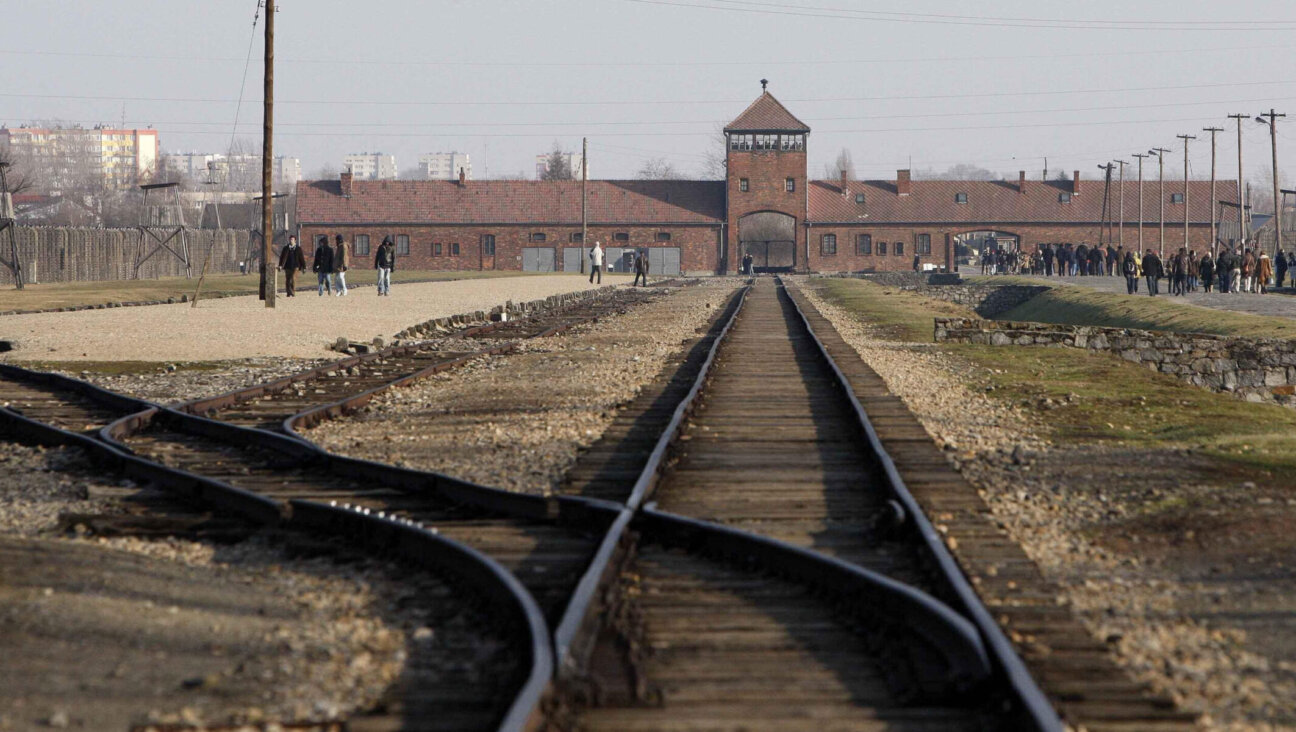Sinead O’Connor was once targeted by Itamar Ben-Gvir over a planned Israel concert for peace
The Irish singer, who died this week, was targeted by an extremist Israeli harassment campaign in 1997

Irish singer Sinead O’Connor sings in concert January 18, 2003 at The Point Theatre in Dublin, Ireland. (Getty Images)
(JTA) – Over the course of Irish pop singer Sinead O’Connor’s career, she made her fair share of enemies — most notably the Catholic Church, after she ripped up a picture of the pope on “Saturday Night Live.”
But five years after that incident, she also found herself in the crosshairs of Israel’s future national security minister.
O’Connor, who died this week at age 56, had in 1997 planned to perform a concert in Jerusalem sponsored by a women-led activist group promoting peace between Israel and the Palestinians. But she canceled the show after receiving scores of death threats from right-wing Israelis — led by Itamar Ben-Gvir, who today is a key figure in the country’s far-right coalition pushing a contentious series of judicial reforms into law.
At the time, Ben-Gvir was not accepted in mainstream Israeli politics but was instead an anti-Arab provocateur and protege of extremist Rabbi Meir Kahane, who advocated for racist policies. The 21-year-old was also an outspoken admirer of Baruch Goldstein, the U.S.-born physician who had murdered 29 Palestinians in Hebron three years prior.
Ben-Gvir and his cohort, who believed Israel should give no land to the Palestinians, opposed O’Connor’s concert (part of a festival called “Sharing Jerusalem: Two Capitals for Two States” to be performed in the aftermath of the Oslo Accords) for its promotion of coexistence. And he insulted the singer in colorful, vulgar terms on Israeli radio.
O’Connor, he said, was a “singer who preaches and calls for the division of Jerusalem and who spreads gentile culture,” adding that she “has no place in Israel.” While Ben-Gvir denied issuing the death threats, he viewed his group’s pressure campaign on the singer as successful after she pulled out of the festival.
Also opposing the festival was then-Jerusalem mayor Ehud Olmert, who would later go on to become Israel’s prime minister from 2006-09. Olmert called it a “provocation” and suggested that the concert had actually been canceled due to poor ticket sales, according to a Jewish Telegraphic Agency report at the time.
O’Connor later went after Ben-Gvir directly in an open letter. “God does not reward those who bring terror to the children of the world,” she wrote. “So you have succeeded in nothing but your soul’s failure.” Supporters of hers in Israel also took to the streets to back her over Ben-Gvir.
Fifteen years later, O’Connor was again conflicted over a scheduled performance in Israel after learning that pro-Palestinian activists were pressuring her and other artists to boycott the country. But she criticized both sides of the debate, noting that she was the sole breadwinner for her family and had a responsibility to support them.
“I do not appreciate being bullied by anyone on either side of this debate any more than I appreciate not being properly informed by my booking agent of the potential ramifications of accepting work in war zones,” she wrote in a statement on her website that she later deleted.
After her death, Ben-Gvir’s office denied this week he had ever threatened her and said he would remember her “favorably because of the difficult life she lived.”
O’Connor, whose biggest hit was her 1990 cover of Prince’s “Nothing Compares 2 U,” struggled with mental health issues throughout her life. After speaking out against abuse in the Catholic Church, she later converted to Islam.
This article originally appeared on JTA.org.
A message from our Publisher & CEO Rachel Fishman Feddersen

I hope you appreciated this article. Before you go, I’d like to ask you to please support the Forward’s award-winning, nonprofit journalism so that we can be prepared for whatever news 2025 brings.
At a time when other newsrooms are closing or cutting back, the Forward has removed its paywall and invested additional resources to report on the ground from Israel and around the U.S. on the impact of the war, rising antisemitism and polarized discourse.
Readers like you make it all possible. Support our work by becoming a Forward Member and connect with our journalism and your community.
— Rachel Fishman Feddersen, Publisher and CEO





















